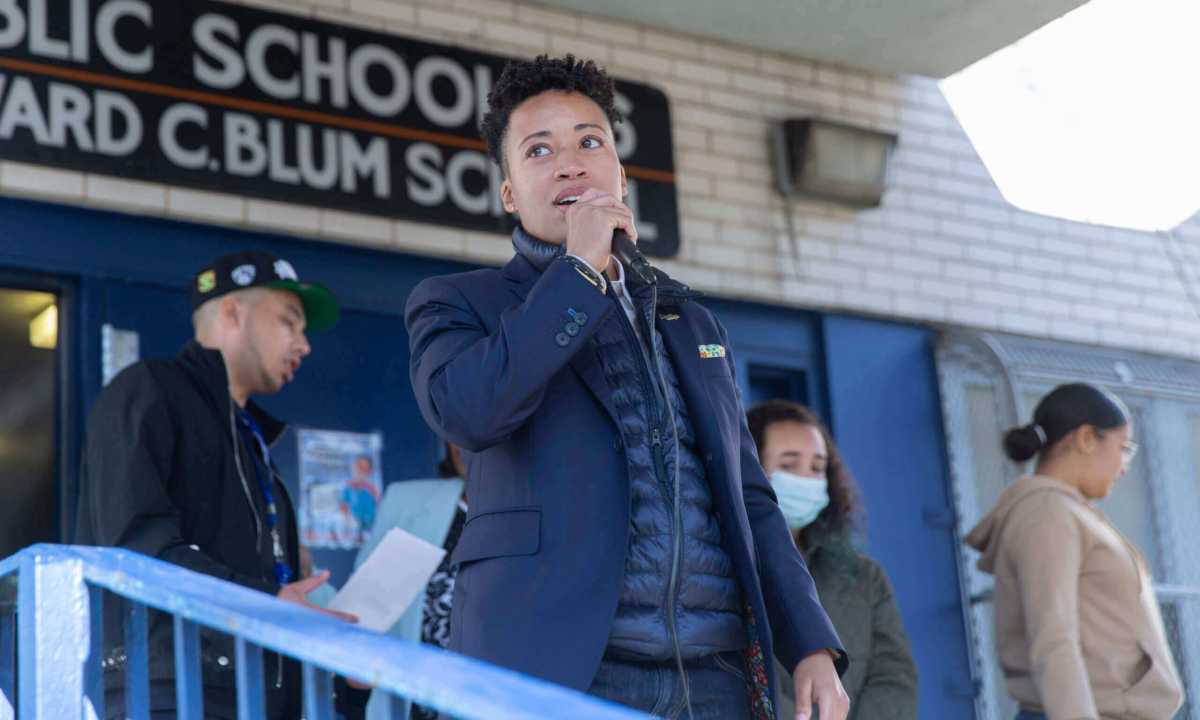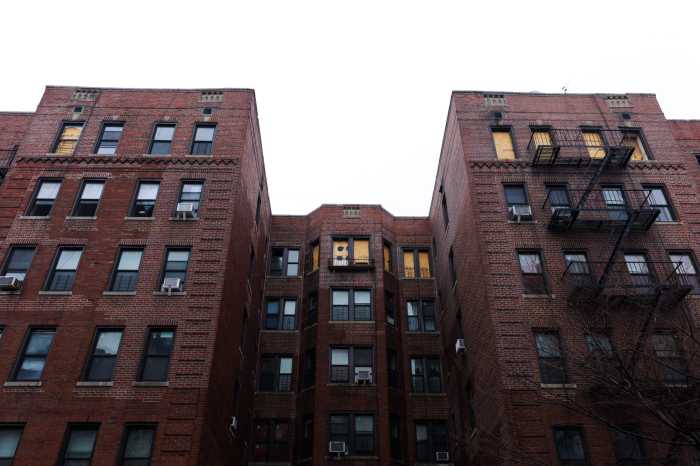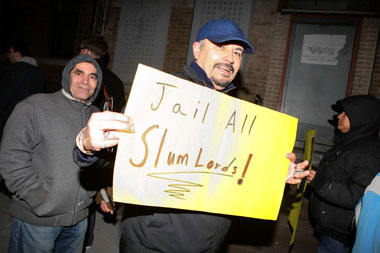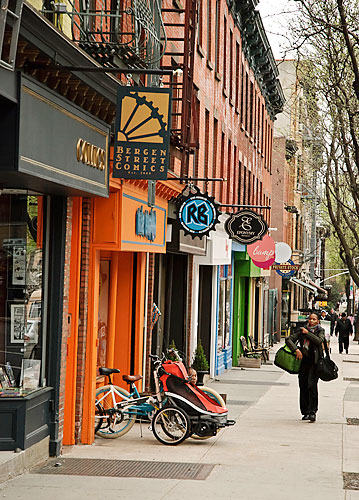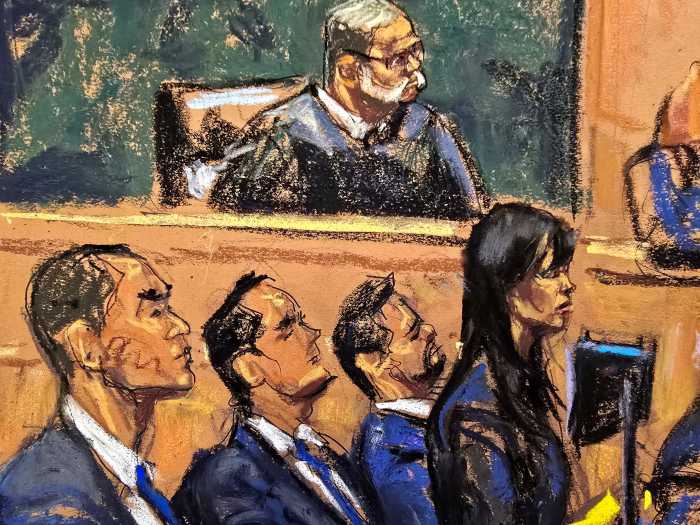From 2010 to 2020, New York City saw a 9% decline in its Black population. In just the last decade, the District I represent – which includes the neighborhoods of Crown Heights, Prospect Heights, Fort Greene, Clinton Hill, and Bed-Stuy – has experienced a 20% loss in its Black population. In neighboring communities across the city, the same housing and affordability crisis wreaking havoc in traditionally Black neighborhoods is actively undermining the wellbeing of all poor and working class communities across the five boroughs.
In the last two decades, the city and state have taken outwardly hostile stances toward our most vulnerable tenants and moderate and low-income homeowners, worsening economic strain and deepening housing instability. Understanding, then, the mechanisms driving the affordability crisis and enacting meaningful solutions––those that adequately address the material needs of our most vulnerable neighbors — is critical.
The pandemic accelerated trends of displacement in our Black and brown, poor and working class neighborhoods. It also deeply exacerbated rent burdens in these communities, with half of Black tenant households falling behind on their rent as early as June 2020. And with rents in New York City at an all-time high, 52% of Black renters remain rent burdened. This has facilitated a surge in evictions—one where Black families across the state are three times as likely to face evictions than white households.
So, now, we find ourselves at a crossroads where protecting Black and brown, poor and working class tenants should be a priority at all levels of government. But government, at every level, is letting our communities down. The last year has laid bare the consequences the expiration of the eviction moratorium and the Emergency Rental Assistance Program (ERAP) have had on our communities, with nearly 50 families being evicted from their homes each day since the start of 2023.
Maria Delgado, for example, a Churches United for Fair Housing (CUFFH) member and Emergency Rental Assistance Program (ERAP) recipient, recently faced an eviction proceeding after her landlord tried to evict her on a false claim of missing rent payments. ERAP helped Ms. Delgado, and hundreds of thousands of other New Yorkers, pay her rent on time and in full. However, her landlord lied, claiming they never received payments––a common tactic used by landlords and management companies to initiate eviction proceedings, knowing that many of their tenants will likely have no representation in court. CUFFH, however, was able to help Ms. Delgado secure a lawyer through the Right to Counsel program at the Legal Aid Society. Maria was able to stay in her home, and the landlord was required to make outstanding repairs in Ms. Delgado’s apartment.
Ms. Delgado’s story is all too common, and eviction cases span from alleged non-payments to fraud and deed theft, like the case of Ray Cortez. And despite having the tools to keep our neighbors, like Ms. Delgado and Mr. Cortez, in their homes, many others don’t get the services they need because our legal service providers are under-resourced. So, we have to work to expand and strengthen Right to Counsel providers so that they can be a reliable and consistent resource for all tenants.
In New York City, for example, Right to Counsel (RTC) has been one of our most powerful and effective anti-eviction programs. Since its enactment in 2017, RTC has demonstrated that when tenants have lawyers, they are able to remain in their homes 86% of the time. When RTC passed in the City Council, evictions and eviction filings dropped 40% and 30%, respectively.
Our existing toolbox is good, and it has kept our neighbors in their homes, but the present moment demands more. Today, 14,000 tenants are being denied their right to a lawyer because the courts are pushing tenants’ cases through at a rate that outpaces RTC provider capacity. While our courts should heed their moral obligation to pause eviction cases until all tenants have adequate legal representation, the state legislature must also fund and pass Statewide Right to Counsel (A1493/S2721) which will alleviate the crisis in our city by mandating the courts to honor RTC––something we don’t have the power to mandate at the municipal level. At the city level, we must also fight to permanently and fully fund RTC and Local Law 53 to support tenant organizing. Knowing which communities are most impacted by evictions is why I introduced and passed an expansion of the Right to Counsel program, guaranteeing all New Yorkers age 60 and over have access to free legal representation should they find themselves facing an eviction.
Eventually, Right to Counsel must be universal for all tenants, because the share of moderate income tenants facing housing insecurity and eviction in the five boroughs has grown significantly during the pandemic; in addition to excluding these tenants, means-testing will only add a costly layer of bureaucracy that will deter many low income tenants from seeking counsel. We have the ability to defend poor and working class Black and brown New Yorkers, and Right to Counsel is a proven solution. Good Cause Eviction legislation and Housing Access Voucher Programs are also proven solutions. Defending the integrity of our communities is an active pursuit, it demands all of us, and it begins with delivering on our belief that housing is a human right. We’re fighting today, especially, in defense of a Black future that benefits all New Yorkers, because when Black folks thrive, everyone thrives.


